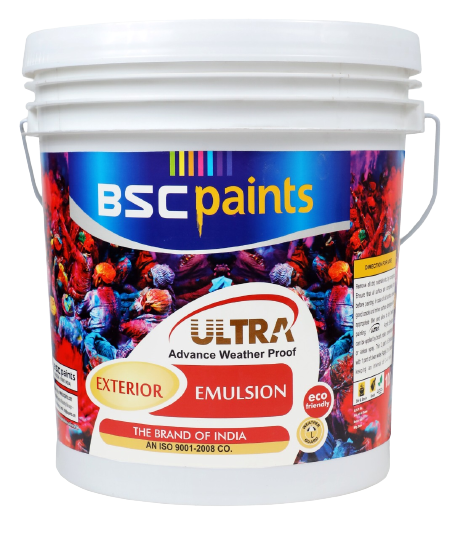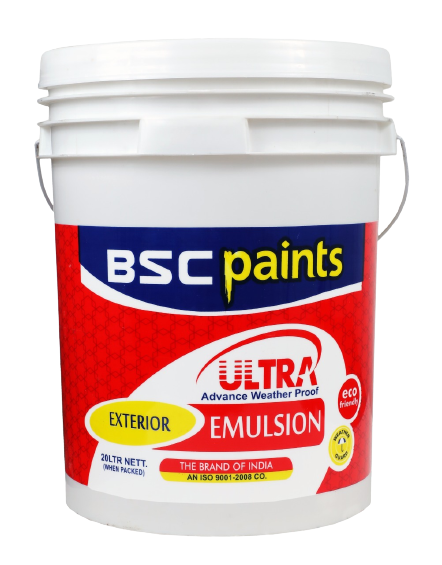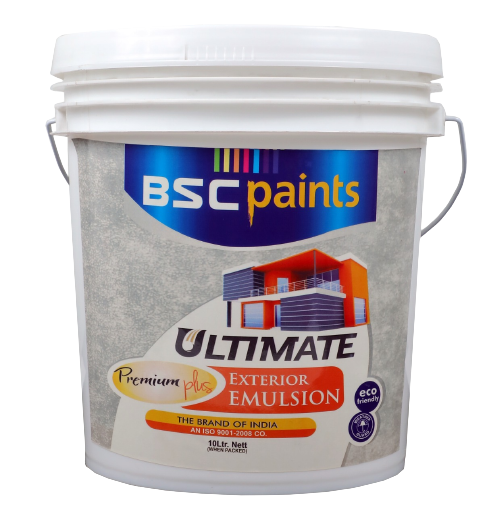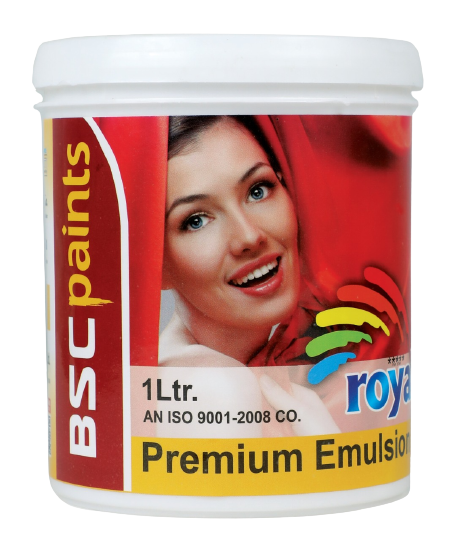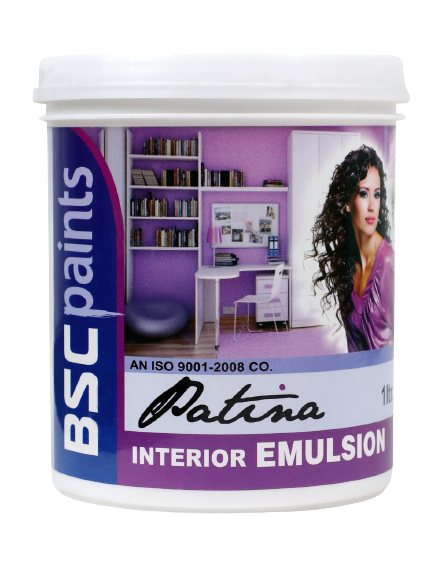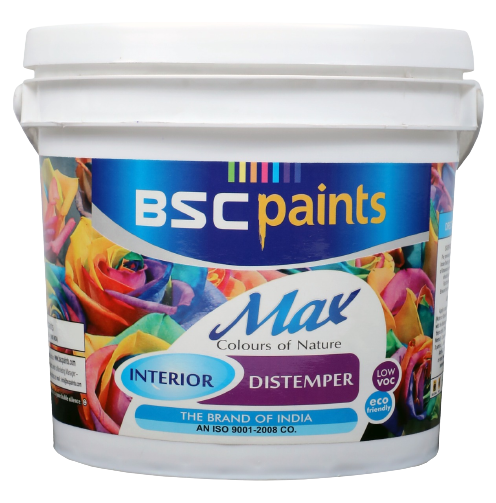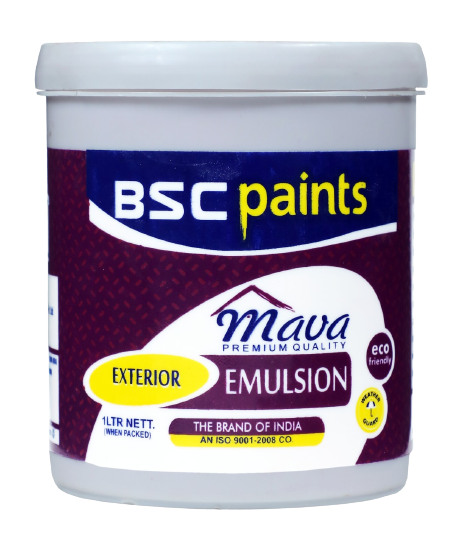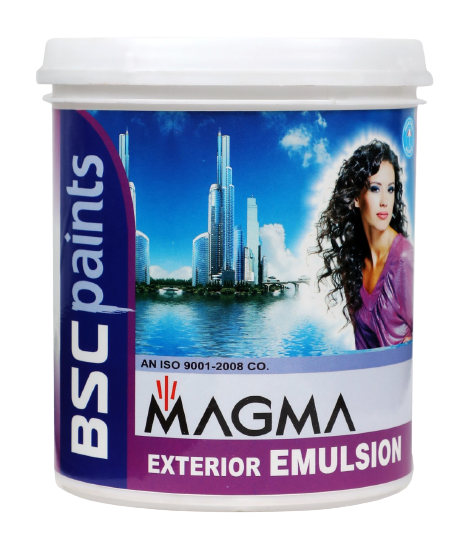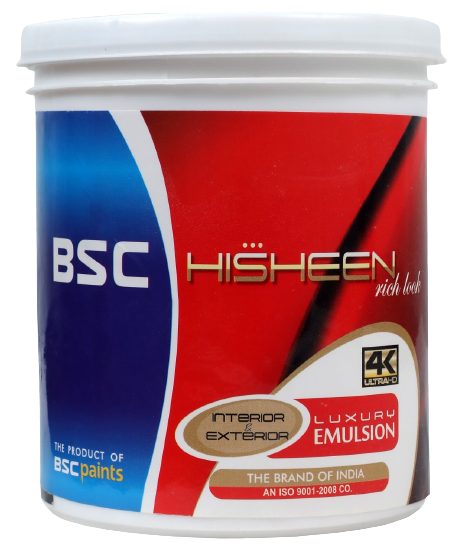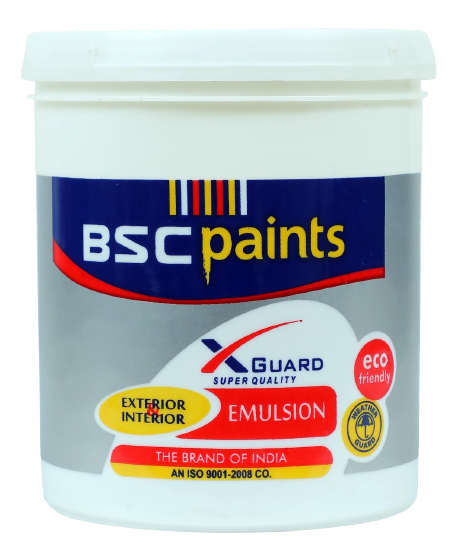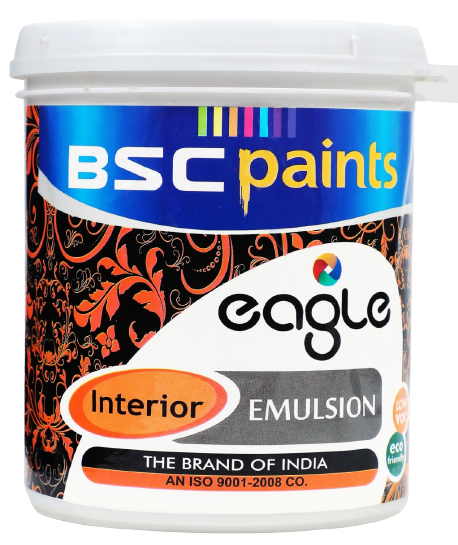Top 05 Best Emulsion Paint Manufacturers Company in India
- BSC Paints, an ISO 9001:2015 certified company, is a foremost name among the leading Paint manufacturer in India and suppliers of Decorative and industrial products. The company is managed by technocrats and professionals, engaged in manufacturing, trading, and importing building materials in India.
- Asian Paints is one of the largest and most well-known paint manufacturers in India. They offer a wide range of emulsion paints for interior and exterior applications. Their products are known for quality and innovation.
- Berger Paints is another leading paint manufacturer in India. They provide various emulsion paints catering to different needs, including Silk Luxury Emulsion and Easy Clean Emulsion.
- Kansai Nerolac, commonly known as Nerolac Paints, is a prominent player in the Indian paint industry. They offer emulsion paints for both residential and commercial applications.
5. ICI Dulux:
- Dulux, a brand of AkzoNobel, is known for its high-quality paints. They offer a range of emulsion paints that are durable and provide a smooth finish.
What is Emulsion Paint ?
Emulsion Paint, also known as latex or acrylic paint, is a type of water-based paint that consists of pigment particles suspended in an acrylic polymer emulsion. This type of paint has become widely popular for both interior and exterior applications due to its ease of use, quick drying time, and versatility. Here are some points for better understanding emulsion paints:
Water-Based: Emulsion paints are primarily water-based, meaning that the solvent used is water rather than oil. This makes them easier to clean up and reduces the emission of volatile organic compounds (VOCs), making them more environmentally friendly.
Pigment Suspension: The pigment particles in emulsion paints are suspended in an acrylic polymer emulsion. This emulsion acts as a binder, holding the pigments together and allowing them to be evenly distributed when applied.
Quick Drying: Emulsion paints generally have a faster drying time compared to oil-based paints. This allows for quicker recoating and shorter project completion times.
Low Odor: Because emulsion paints are water-based, they tend to have a lower odor than oil-based paints. This makes them more suitable for indoor use, especially in spaces where strong paint odors may be a concern.
Versatility: Emulsion paints are versatile and can be used on a variety of surfaces, including plaster, drywall, wood, and masonry. They are commonly used for walls and ceilings in both residential and commercial settings.
Finish Options: Emulsion paints come in different finishes, including matte, eggshell, satin, and gloss. The finish determines the level of sheen on the painted surface, with matte being more subdued and gloss offering a shiny appearance.
Easy Cleanup: Brushes and rollers used with emulsion paints can be easily cleaned with water, making cleanup simpler compared to oil-based paints that require solvents.
Durability: Emulsion paints are known for their durability and resistance to cracking, peeling, and fading over time. This makes them suitable for high-traffic areas.
Mildew Resistance: Many emulsion paints are formulated with additives that make them resistant to mildew and mold growth. This is particularly beneficial in damp or humid environments.
Colour Options: Emulsion paints come in a wide range of colours, and they can be tinted to achieve custom shades. This allows for a high degree of customization to meet specific design preferences.
What Is Inretior Emulsion And Exterior Emulsion Paints ?
Interior emulsion paint and exterior emulsion paint are variations of emulsion paints designed for specific applications within a building—either inside or outside. Here are some points of differences between the two:
Interior Emulsion Paint:
Usage:
- Application Inside the Building: Interior emulsion paint is formulated for use on interior surfaces such as walls and ceilings inside homes, offices, and other structures.
Characteristics:
- Low VOCs: Interior paints often have lower levels of volatile organic compounds (VOCs) to minimize the impact on indoor air quality.
- Low Odour: They are designed to have a minimal odour, making them more suitable for enclosed spaces.
- Easy to Clean: Interior emulsions are typically easy to clean, making them suitable for areas prone to dirt or stains, such as kitchens and bathrooms.
- Various Finishes: Available in various finishes, including matte, eggshell, satin, and gloss, to suit different aesthetic preferences.
Durability:
- Lighter Weather Resistance: Interior emulsion paints are not formulated to withstand harsh outdoor conditions, so they may not be as weather-resistant as exterior paints.
Exterior Emulsion Paint:
Usage:
- Application Outside the Building: Exterior emulsion paint is specifically designed for use on exterior surfaces, such as the outer walls of buildings.
Characteristics:
- Weather Resistance: Exterior paints are formulated to withstand varying weather conditions, including exposure to sunlight, rain, and temperature fluctuations.
- Mold and Mildew Resistance: Many exterior emulsion paints are formulated with additives that make them resistant to mould and mildew growth.
- UV Resistance: They often have UV-resistant properties to prevent fading due to sunlight exposure.
- Durability: Formulated to be more durable and resistant to wear and tear caused by outdoor elements.
Finishes:
- Flat or Satin Finishes: Exterior emulsion paints may have flat or satin finishes to provide a protective and aesthetically pleasing surface.
Colour Retention:
- Longer Colour Retention: Exterior paints are designed to maintain their colour and finish for a more extended period, despite exposure to the elements.
Why use choose BSC Paints Interior & Exterior Emulsion Paints?
Product Quality and Durability:
- Assess the quality and durability of BSC Paints’ products. Look for information on the types of paints they offer, their formulations, and any features that make them stand out in terms of performance and longevity.
Range of Colors and Finishes:
- Consider the variety of colors and finishes available. A diverse range of options allows you to choose paints that suit your aesthetic preferences and functional requirements.
Innovations and Special Features:
- Check if BSC Paints offers any innovative or unique features in their products. This could include technologies that enhance durability, resistance to stains, or eco-friendly formulations.
Customer Reviews and Feedback:
- Look for customer reviews and feedback on BSC Paints’ products. This can provide insights into the experiences of other customers, including the ease of application, color accuracy, and overall satisfaction.
Environmental Considerations:
- Assess BSC Paints’ commitment to environmental sustainability. Many consumers today prioritize eco-friendly options with low VOC content. Check if the brand aligns with your environmental values.
Customer Support and Services:
- Evaluate the level of customer support provided by BSC Paints. This includes assistance in choosing the right products, guidance on application, and responsiveness to customer inquiries or issues.
Brand Reputation and Trustworthiness:
- Research the brand’s reputation and credibility. A brand with a positive track record is more likely to provide reliable and high-quality products.
Local Availability:
- Consider the availability of BSC Paints products in your local area. Accessibility is a practical consideration, and you may want to choose a brand with a distribution network that meets your needs.
Cost and Value for Money:
- Compare the cost of BSC Paints’ products with similar products from other well-established brands. Consider the value for money, which includes both the upfront cost and the long-term performance of the paint.
Recommendations from Professionals:
- If possible, seek recommendations from professionals in the painting industry, such as contractors or interior designers. Their insights can be valuable in assessing the quality and suitability of a particular paint brand.
Before choosing any paint brand, it’s advisable to gather as much information as possible and, if available, test a small sample of the paint to see how it performs.

